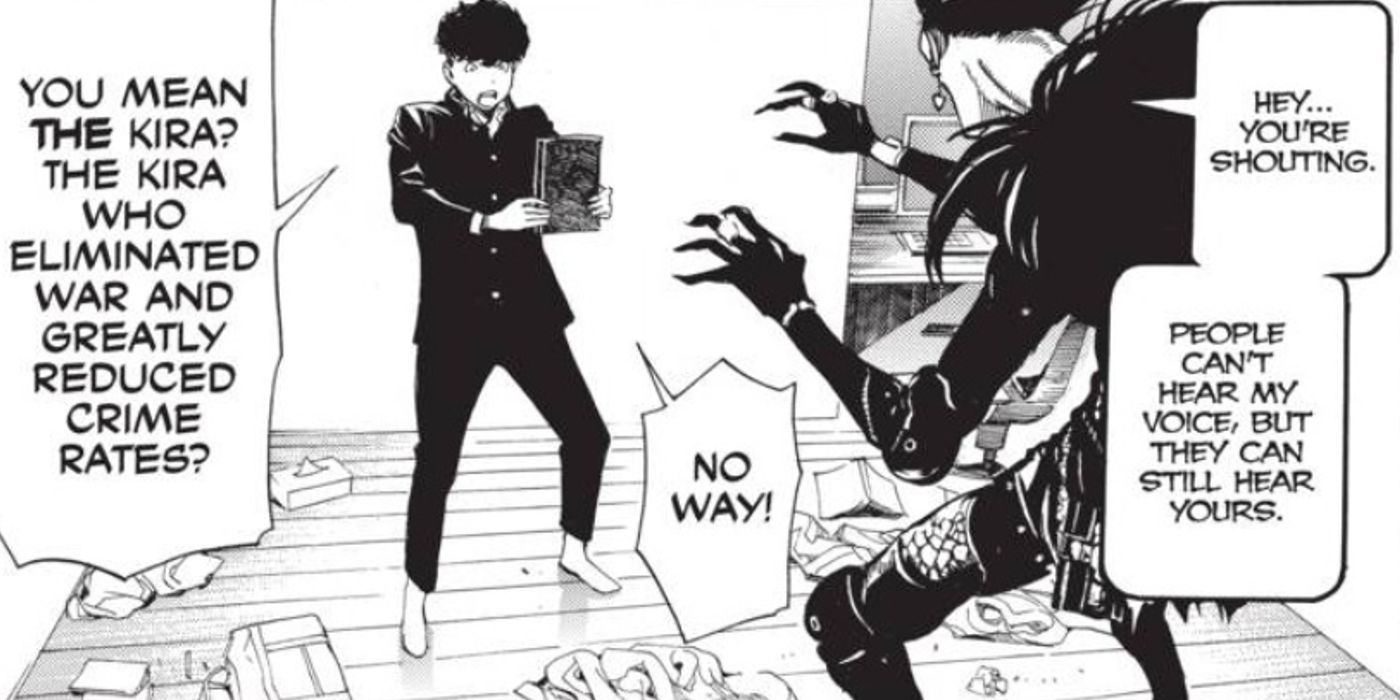Warning! Spoilers ahead for Death Note Short Stories chapter 2!
The official sequel to Death Note confirms that Light Yagami as Kira eliminated war and greatly reduced crime, but his murdering spree also enabled the Japanese government to impose more restrictions on its people.
In Death Note, fans celebrate the protagonist/antagonist Light Yagami for his shocking belief that killing off the worst criminals would herald in a new just world where he’d rule as its savior. His actions even spawned cult worshipers whose nationalities stretched beyond Japan’s shores as Kira gained notoriety. During Light’s rise to power, many people began debating whether Kira was a force of good – even God themself – or of evil. But readers never had the chance to see the end result of those debates as Kira was killed off at the series’ end.
With the collection Death Note Short Stories by Tsugumi Ohba, the same mangaka who wrote the original series, finally answers these burning questions. In Chapter 2: A-Kira, a middle schooler named Minoru Tanaka reveals this crucial bit of information after Light’s Shinigami Ryuk gives him the very same notebook that Kira used before him. Upon hearing this, Minoru says, “You mean the Kira? The Kira who eliminated war and greatly reduced crime rates?” When trying to come up with a strategy on how to use the Death Note in today’s world, Minoru also mentions that there’s now a security camera on every street corner and train car with dash cams installed on all cars and buses. He later adds that the police now have tabs on all cell phone calls and all online messaging is tracked.

Although Minoru doesn’t state for a fact that these changes went into effect because of Kira, he does concede that it would be difficult killing the same way that Kira did because of them. This creates the impression that many of these mandates are a result of Kira. Regardless, despite the positive developments that came about because of him, humanity doesn’t view him kindly, with textbooks referring to Kira as a mass-murdering terrorist. From an ethical standpoint, this is definitely a more positive alternative to the contrary, which would have essentially portrayed the world as a place that values and permits the legalization of extreme vigilantism. But there’s still a sense of irony, as life has improved because of Light. In fact, this world would have been completely better off than it was before Kira if the government hadn’t imposed these new restrictions. Of course, this brings up another ethical and moral argument if freedom and privacy should be sacrificed to ensure the safety of humanity.
On another level, this chapter does conflict with Death Note’s unverified ending where Light Yagami doesn’t die and is still writing in his Death Note as a much older man. In that alternative conclusion, readers assume that Light has been utilizing the otherworldly book to the same extent at which he did in the original series. This implies that his efforts still haven’t led to the utopia he envisioned, one that the world in Death Note Short Stories has apparently achieved. In Short Stories, Kira’s usage of the Death Note is understood to be lower than the unverified manga as he dies at the end of the series, and yet, there’s apparently no war and crime is essentially nonexistent. This then begs the question of if Kira’s actions would have been more effective if he stopped using it, and that overutilization caused the opposite effect than he intended. That, or the unverified ending is just false and was never considered canon like Short Stories. Regardless, Death Note Short Stories provides fans with a more comprehensive look at a world that many still miss considerably.




